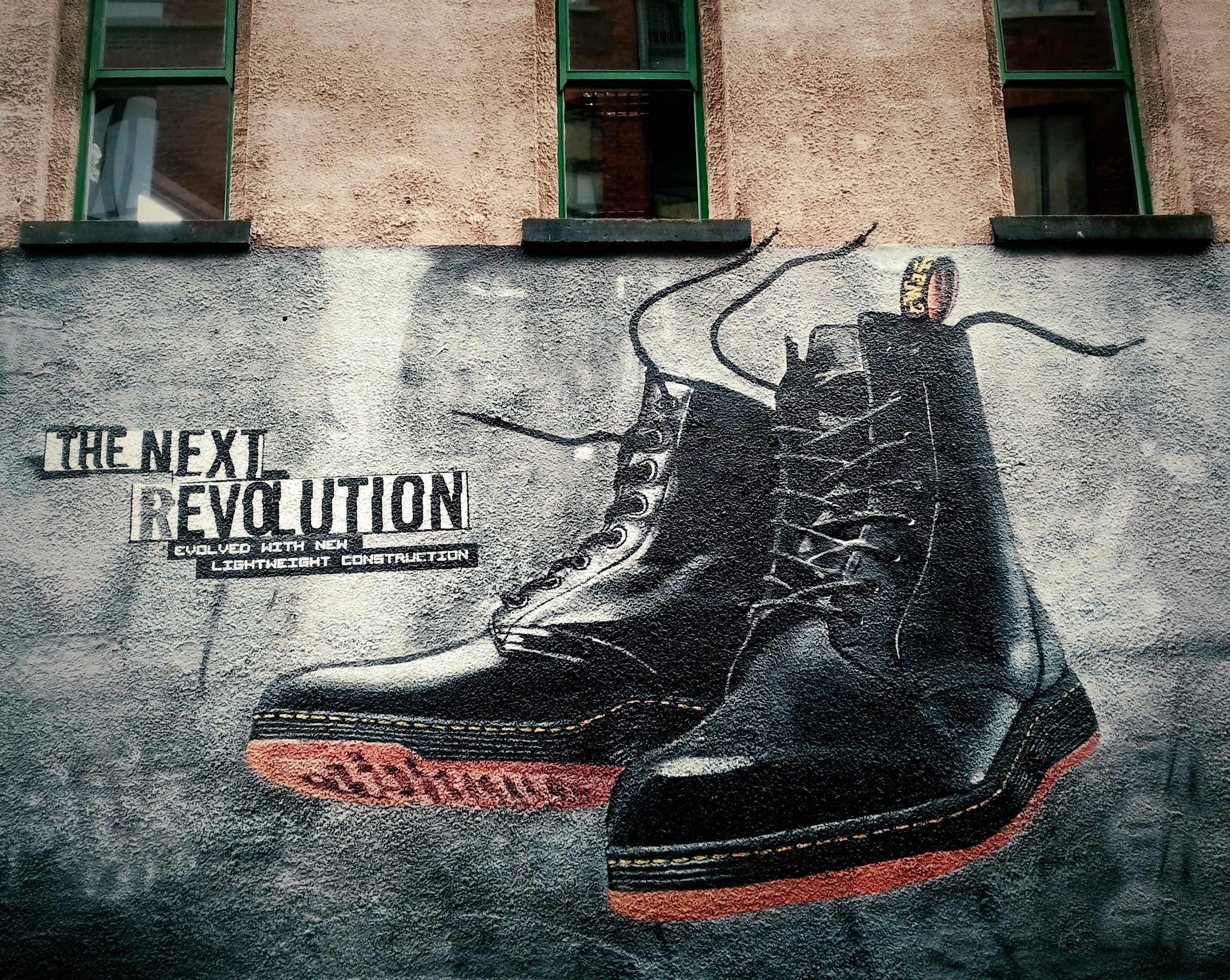Weekend Box #108: All At Sea in Solomon Islands & more
Welcome to The Weekend Box, Audley’s weekly round-up of interesting or obscure political, business and cultural news from around the world.
Image credit/Christopher John SSF on Flickr/License
ALL AT SEA IN SOLOMON ISLANDS
China's quest for influence in the Pacific faces uncertainty following a tumultuous election in the Solomon Islands on Wednesday. The election was marked by lost ballot boxes at sea and voters receiving incorrect forms. Amidst this chaos, crowds anxiously awaited results outside Honiara's vote-counting office, with officials suggesting a result won’t be known until next week.
The election's outcome will determine the fate of Manasseh Sogavare, the current prime minister of the Solomon Islands. His tenure has been characterized by a controversial security deal with China. Under his leadership, China has invested heavily in the islands, funding projects like a £50m sports stadium, a new hospital, and roads.
In return for China's investments, Sogavare has strengthened ties with Beijing in a controversial security pact signed in 2022, allowing Chinese police into the country and paving the way for potential Chinese military presence near Australia. The Solomon Islands is only 900 miles off Australia’s northeast coast. Sogavare also severed ties with Taiwan, causing concerns among traditional allies Australia and the US.
While ballot boxes were still being transported for counting in some remote areas, Jasper Anisi, the chief electoral officer, put in place security arrangements at counting centres across the island nation. Tensions escalated in the capital, Honiara, as soldiers from Fiji and Papua New Guinea maintained order outside the vote-counting center.
Amidst concerns of potential violence, defense personnel from Australia and New Zealand are also present to assist with the election and safeguard the capital. In 2021, protests against Sogavare resulted in the storming of parliament and damage to Honiara’s Chinatown. Security around the Chinese embassy has been increased, reflecting Beijing's fears of anti-China unrest.
Post-election, the 50 elected MPs will choose a prime minister through a secretive process which plays out in Honiara’s hotels. Gordon Darcy Lilo, a former prime minister and Sogavare’s main rival, has garnered significant support, emphasizing the need to ‘reclaim the country’ from foreign influence.
Image credit/Brian Hawkins on Flickr/License
MICROSOFT & G42 ON CLOUD NINE
This week saw a tech deal struck in the United Arab Emirates that has more than merely commercial significance, as Microsoft announced it would invest $1.5bn in the UAE’s world-leading artificial intelligence firm, G42. The deal will see Microsoft become G42’s official cloud (data storage) partner, while G42 migrates its data platform and other technical infrastructure to using Microsoft software. Microsoft President Brad Smith joins the board of G42 into the bargain.
More significantly, the deal requires G42 to stop using Chinese technology such as Huawei telecom equipment, and is underpinned by an overt bilateral agreement between the US and UAE governments; “a first-of-its-kind binding agreement to apply world-class best practices to ensure the secure, trusted, and responsible development and deployment of AI.” Essentially, after concerns in the US that G42 and other Middle East-based AI developers were using both Chinese and US technology, thereby creating a back door for China to access US chip technology, the US has forced the UAE to choose in their favour.
Previously, the US House Select Committee on the CCP had called on the government to add G42 to the Entity List, which would have barred it from accessing sensitive US tech, as with Huawei. In response, G42 has divested itself from Chinese links and tech, with CEO Peng Xiao saying, “We cannot work with both sides.”
G42 is a key asset in the UAE’s diversification strategy. The country is well placed for the data centres required to train and run AI models. Their huge energy requirements can be provided through the cost-effective use of fossil fuels and a transition to solar power. G42 has emerged as a leading developer in applications including financial services, energy, and public services. It has partnerships with companies including OpenAI, Dell, IBM, Nvidia, Oracle, Cerebras, AstraZeneca, genetics giant Illumina, and Mercedes.
Image credit/Number 10 on Flickr/License
STREAMING DISSERVICE
ITV is considering broadcasting political adverts on its streaming platform ITVX, exploiting a loophole in broadcasting law.
The relevant provisions of the Television Act 1954, (“no advertisement shall be permitted which is directed towards any religious or political end”), last updated in 2003, don’t extend to internet-streamed TV.
If ITV cleared the way for British political parties to advertise on its platform, it could mark a significant change in political communications. If we end up seeing American-style attack ads on our screens, political discourse itself might head in an unsavoury direction.
The issue raises questions of fairness since smaller, less-well-funded parties will risk being outgunned by Labour and the Conservatives. This is particularly pertinent given a recent rule change that raises the spending cap for general election campaigns from £19.5m to £35m.
Meanwhile, ITV, grappling with declines in traditional ad revenues, faces the choice of either embracing this new revenue stream or watching potential earnings go to platforms like YouTube that do not restrict political ads.
Regulatory bodies like Ofcom and the Advertising Standards Authority (ASA) say streaming services are free to set their own policies regarding political ads. The ASA emphasises that while it doesn’t regulate election-influencing ads, it expects advertisers to maintain honesty and fairness. That feels something of a forlorn hope in front of what is likely to be a gruelling and nasty general election.
The Conservatives recent attempts at social media attack ads have attracted plenty of criticism. The party’s candidate for Mayor of London had to distance herself from a now-deleted ad purporting to show footage of a stampede in London; it was in fact New York.
Our political culture has, regrettably, become more febrile in recent times. It might be better for our collective sanity if ITV resists exploiting this loophole.
Image credit/CJS*64 on Flickr/License
PROFIT WARNING PUTS THE BOOT IN FOR DR. MARTENS
It’s been a bad week for Dr. Martens, whose stock market value plummeted by a third following its fifth profit warning in three years and the departure announcement of its Chief Exec Kenny Wilson.
In 2021, the British footwear brand floated with a share price of 370p a share, and continued climbing to a high of 503p in June during the pandemic day-trading and retail investing boom. At the time of writing, it was just 69p.
What went wrong? In short, American customers – or a lack thereof. A slump in US consumer confidence has hit the retail market more generally, but it’s also true that Dr. Martens simply didn’t capture the US crowd. In tandem, a swathe of logistical and operational issues hit the brand, which cited supply chain issues and cost pressures as reasons for its tumbling profits.
While investors might reassure themselves that some of this couldn’t have been predicted, this fall from grace also serves as a reminder of the dangers of investing in PE-backed companies selling a story of easy growth ahead – especially when the valuation is considerably inflated by most measures. Hindsight may well be 20:20, but there will be more than a few investors kicking themselves for deciding a consumer brand with shares priced on a multiple of 103 times profits was a rational venture.
Despite recent failings, Wilson has not been forced out: he ‘has decided that this will be his final year as CEO’. He will be succeeded by Ije Nwokorie, Dr. Martens’ current chief brand officer. Formerly a senior director at Apple and CEO at global brand consultancy Wolff Olins, Nwokorie is as well-placed as any candidate to reignite the Dr. Martens story and steer the brand to success in the US market. But this is only half the challenge; whether he can tackle their operational challenges remains to be seen.
Image credit/Troy David Johnston on Flickr/License
STARS COME OUT FOR OLIVIER AWARDS
On Sunday stars of the stage hit the red carpet at London’s Royal Albert Hall on Sunday for “the most prestigious event in UK theatre”: the Olivier Awards, celebrating “the world-class status of London theatre.”
A number of big names, and the successful plays they were in, were up for awards. Joseph Fiennes, Mark Gatiss, Andrew Scott, James Norton, and David Tennant were all up for best actor, with Gatiss ultimately winning for his turn as English actor and theatre director John Gielgud in The Motive and the Cue.
While Fiennes didn’t win for his performance as England football manager Gareth Southgate in Dear England, the play beat out The Motive and the Cue and others for the best new play award.
Competition for best actress was also tough, with a mix of British screen stars and Hollywood names vying for the title: Laura Donnelly, Sophie Okonedo, Sarah Jessica Parker, Sheridan Smith, and Sarah Snook. Snook won for her performances – yes, you read that right – of 26 different characters in a one-woman adaptation of The Picture of Dorian Gray.
The musical Sunset Boulevard was successful in numerous categories, notably netting the award for best actress in a musical for its lead: none other than Nicole Scherzinger, formerly of pop group the Pussycat Dolls. Acclaimed actress Haydn Gwynne was posthumously awarded best supporting actress for her performance in When Winston Went to War with the Wireless.
Someone who wasn’t up for an award also, unexpectedly, ended up in the limelight – or perhaps that should be lowlights. That would be a photographer who was rightly rebuked by Awards host Hannah Waddingham after telling her: “show me leg.” Waddingham later told the One Show that she was not allowing the incident to overshadow “the most glorious, joyful, positive night.”
And that’s it for this week. I hope you found something of interest that you might want to delve into further. If so, please get in touch at cwilkins@audleyadvisors.com.
For now, that’s The Weekend Box officially closed.






